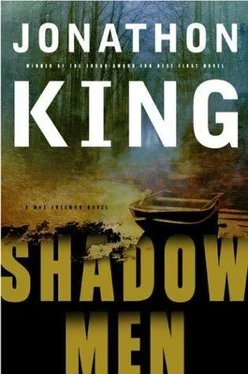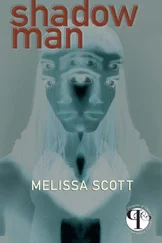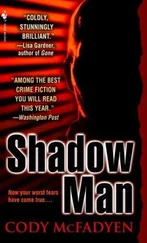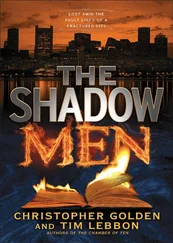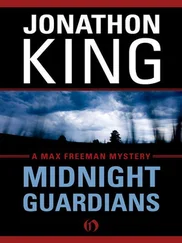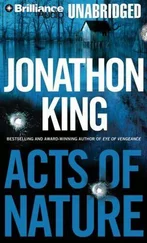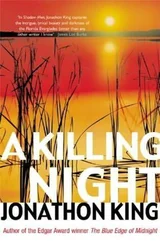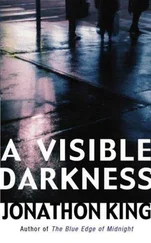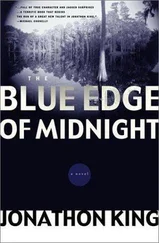Jonathon King - Shadow Men
Здесь есть возможность читать онлайн «Jonathon King - Shadow Men» весь текст электронной книги совершенно бесплатно (целиком полную версию без сокращений). В некоторых случаях можно слушать аудио, скачать через торрент в формате fb2 и присутствует краткое содержание. Жанр: Триллер, на английском языке. Описание произведения, (предисловие) а так же отзывы посетителей доступны на портале библиотеки ЛибКат.
- Название:Shadow Men
- Автор:
- Жанр:
- Год:неизвестен
- ISBN:нет данных
- Рейтинг книги:4 / 5. Голосов: 1
-
Избранное:Добавить в избранное
- Отзывы:
-
Ваша оценка:
- 80
- 1
- 2
- 3
- 4
- 5
Shadow Men: краткое содержание, описание и аннотация
Предлагаем к чтению аннотацию, описание, краткое содержание или предисловие (зависит от того, что написал сам автор книги «Shadow Men»). Если вы не нашли необходимую информацию о книге — напишите в комментариях, мы постараемся отыскать её.
Shadow Men — читать онлайн бесплатно полную книгу (весь текст) целиком
Ниже представлен текст книги, разбитый по страницам. Система сохранения места последней прочитанной страницы, позволяет с удобством читать онлайн бесплатно книгу «Shadow Men», без необходимости каждый раз заново искать на чём Вы остановились. Поставьте закладку, и сможете в любой момент перейти на страницу, на которой закончили чтение.
Интервал:
Закладка:
The sound of a screen door slapping shut stopped the reverend's recounting and we both looked up toward the church.
A woman carrying a tray with a pitcher and two glasses was walking toward us. She was dressed in a long printed dress and was tall even in the flat shoes that resembled black dancing slippers. Her honey-colored hair was up, and I could see touches of gray at the roots above her ears. Her eyes were red-rimmed and anxious, as though she had been both crying and angry at the same time.
"Ahh, thank you, Margery," Jefferson said. "Mr. Freeman, this is my wife, Margery. I believe you have spoken on the phone."
I stood up to greet her, but when she set the tray of lemonade on the table she did not offer her hand or look me in the eyes.
"Yes," she said, and then to her husband, "Are you all right, William?" The look in her eyes had changed to one of legitimate concern.
"Yes, Margery," he answered. "We'll be fine."
I could tell that "we'll" meant the both of them. She nodded and walked back to the church. When she had gone Jefferson poured the glasses. The coolness of the drink on my throat made me suddenly aware of the moist heat that was rising all around us in the canopy of shade. It was past noon and out in the sunlit meadow, grasshoppers were flying. I was about to ask Jefferson if he wanted to take a break, but held back. I had been in police interview rooms where you learned that once a guy started talking, you let him. The reverend was in his confessional; I bowed my head and listened.
"It was not an easy situation for my father and mother. The constant rumors. The fear," he said, looking out and seeming to find the grasshoppers himself.
His mother was a local girl from Everglades City, extremely religious. She knew the stories, the devil warnings about the Jeffersons who lived by the river. But Clinton Jefferson was her own age and they went to the only country school within fifty miles and the boy was polite and shy and nearly friendless. When she began coming by his house, she did not recall ever having heard Mr. Jefferson say a word. When she convinced Clinton to join her at Bible study, the father did not oppose it. When they were married at the age of eighteen, he did not attend the wedding. His wife excused him as being off on business. But Clinton Jefferson would not leave his parents despite being tainted by his father's reputation. He could not leave his mother to bear it on her own and he moved his new wife into the river house. The two women grew close-the reverend's mother was the first to hear about the pent-up pain of the wife who'd shared her husband's strange isolation and odd justifications for so many years.
"My mother was the one who then shared the stories with me, doling them out little by little as I grew," Jefferson said. "She wove them in with lessons of God's plan and his forgiveness. It was the beginning of my religious education."
"And you moved away after your grandfather died?" I said. It was the first question that I had asked.
"Killed himself," Jefferson corrected me sharply, and the retort brought my head up. "My father found the body in the barn on a winter day in 1962. He had shot himself with his own rifle.
"My grandmother survived for only a few years afterward. I was twelve when we left and I remember my father locking the front door to the river house. We drove away with only what we could fit in the truck and never went back."
The reverend's eyes were still on the meadow when I asked him if his own father would remember any more of the details of John William's activities in 1924 and his work on the trail.
"I'm sure he would have, Mr. Freeman. I believe my father lived through, and was visited by, every suspicion and every true exploit that my grandfather performed or was quietly accused of performing. In a place like that, one wrestles with his own conscience alone and with only God to forgive."
"Is it possible for me to speak to him, just to see what he might recall?"
The reverend waited a long silent beat before answering.
"My father died by his own hand fifteen years ago, just after I took this church posting, Mr. Freeman."
He stood and picked up the tray his wife had delivered and started walking back toward the church. When I followed and stepped out into the sun, the brightness and sudden heat caused me to flinch, and the vision of Jefferson framed in the steeple shape of the church blurred and shimmered out of focus for a second and any words I might have offered were even further washed away. When he reached the back door he stepped inside without a word and I stopped and was considering my long drive home when he reappeared. His hands were empty and he had settled a light-colored straw hat on his head. He met my eyes and there was a look of determination on his face, like something had been settled.
"I need you to follow me, Mr. Freeman. If you would, sir, I have something for you."
I trailed his dark sedan through town and saw at least three people wave at him as he passed by the small hardware store, the barber shop with an actual working red-and-white-striped pole, and a sign outside a plain brick storefront that said HAIR AND TANNING SALON. Two miles later he turned off onto a side road going west. Two-story farmhouses sat back from green lawns, with stands of pines to either side. Another mile and he turned north on a dirt road; the dust boiled up behind his car and I backed farther off, out of the swirl. Finally I saw his brake lights flash and he pulled onto a two-track drive that led through a column of oaks and up to a white, clapboard house. There was a wide veranda across the front and an American flag flying from the corner post. He parked next to an older model van, and I stopped behind him and got out.
"This is my home, Mr. Freeman-excuse me for not inviting you in," he said with a voice of true apology, before leading me toward the back. Behind the house was a thriving garden that appeared to cover at least an acre, with more open land back to a windbreak of tall trees. The ruts of the two-track led up to the sliding front door of a small barn, and the reverend continued that way. He offered no comment, no expression of pride or information on his land, and I did not probe. He rolled the bare door all the way open, letting the sun pour in to illuminate the open bay and its array of tools propped against the walls, the workbench at the back, and the old iron tractor parked in the middle of it all. The smell was of dust and dry grass, gasoline and heat-cured, rough-cut wood. He went to the bench and took down a two-foot-long pry bar and then crossed to the base of a simple staircase. There he snapped on a light switch, but I couldn't tell where, or if, a bulb had gone on. I followed the line of stairs and saw that planks covered the back half of the barn's thick ceiling joists and served as an upstairs floor. The reverend started up and I followed. He waited for me at the top step, and when he moved to give me room, the plank creaked under his slight weight.
"Watch your head," he said, and I had to keep myself bent to fit under the low angle of the roof trusses. I could now see a single lit bulb hanging in the rafters.
"Back in the far corner there, Mr. Freeman, is a crate from my grandfather's river house," he said, nodding toward the northeast wall. "It is one of the few things that my father salvaged from that place."
I looked in his face, but he would not meet my eyes.
"You may take it with you, sir. And do with it what you must."
He handed me the pry bar and this time looked in my face and must have seen the questions. In his own face was a look of calm benevolence-and maybe a sense of relief.
"It is a new and scientific world, Mr. Freeman. Experts have broken down the double helix of life and snipped at individual strands of genetic material and told us they have the blueprint all mapped out."
Читать дальшеИнтервал:
Закладка:
Похожие книги на «Shadow Men»
Представляем Вашему вниманию похожие книги на «Shadow Men» списком для выбора. Мы отобрали схожую по названию и смыслу литературу в надежде предоставить читателям больше вариантов отыскать новые, интересные, ещё непрочитанные произведения.
Обсуждение, отзывы о книге «Shadow Men» и просто собственные мнения читателей. Оставьте ваши комментарии, напишите, что Вы думаете о произведении, его смысле или главных героях. Укажите что конкретно понравилось, а что нет, и почему Вы так считаете.
